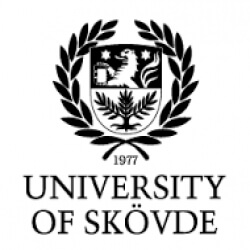Game Development: Unlock Your Creative Potential Abroad
Are you passionate about video games, storytelling, and cutting-edge technology? Studying Game Development abroad offers Indian students an unparalleled opportunity to turn your gaming hobby into a thriving career. With the global gaming industry booming—valued at over $180 billion in 2023—now is the perfect time to dive into this dynamic field. From designing immersive worlds to coding interactive experiences, a degree in Game Development equips you with skills that are in high demand worldwide. For Indian students, studying abroad means access to world-class facilities, innovative curricula, and diverse networks that can accelerate your path to success in tech hubs like Silicon Valley or Europe's creative studios.
Whether you're from Mumbai's bustling tech scene or a smaller city dreaming big, Game Development programs abroad blend creativity with technical prowess, preparing you for roles in AAA game studios, indie development, or even emerging fields like VR/AR gaming. Let's explore why this course is a game-changer for your future.
What is Game Development?
Game Development is the art and science of creating video games, from concept to launch. It involves a multidisciplinary approach, combining programming, graphic design, animation, sound engineering, and narrative writing. Unlike traditional software development, it focuses on player engagement—crafting experiences that entertain, educate, and challenge.
Key components include:
- Programming: Using languages like C++, Java, or Unity's C# to build game logic and mechanics.
- Design: Creating levels, characters, and user interfaces that captivate players.
- Art and Animation: Developing 2D/3D models, textures, and fluid animations.
- Audio and Narrative: Integrating sound effects, music, and compelling stories.
- Testing and Optimization: Ensuring games run smoothly across platforms like PC, mobile, consoles, and VR.
For Indian students, this field resonates with our rich tradition of storytelling—from ancient epics like the Mahabharata to modern Bollywood narratives—allowing you to infuse cultural elements into global games.
Why Study Game Development Abroad as an Indian Student?
India's IT sector is massive, but the gaming industry here is still nascent compared to global leaders. Studying abroad exposes you to advanced tools, real-world projects, and international collaborations that local programs might lack. Here's why it's worth the leap:
- Industry Exposure: Countries like the USA, UK, and Canada host giants like EA, Ubisoft, and Rockstar Games, offering internships and job placements.
- Cutting-Edge Technology: Access to high-end labs with tools like Unreal Engine, Maya, and Oculus for VR development—resources often limited in India.
- Diverse Perspectives: Collaborate with students from around the world, broadening your creative horizons and building a global network.
- Scholarships and Funding: Many universities offer merit-based aid for international students, reducing costs for talented Indians.
- Cultural and Professional Growth: Adapt to new environments, improving English proficiency and soft skills essential for multinational teams.
Moreover, post-study work visas in destinations like Australia and Canada allow you to gain experience abroad before returning to India's growing esports scene or starting your own studio.
Top Destinations and Universities for Game Development
Choosing the right destination can shape your career. Here's a curated list of top spots for Indian students, focusing on program quality, affordability, and post-graduation opportunities.
| Country | Top Universities | Key Highlights | Average Tuition (INR per year) |
|---|---|---|---|
| USA | University of Southern California (USC), DigiPen Institute of Technology | Strong focus on Hollywood-level production; internships with studios like Blizzard. | 25-40 lakhs |
| UK | Abertay University, Bournemouth University | Industry partnerships with Sony and Nintendo; short 1-year master's programs. | 15-25 lakhs |
| Canada | Sheridan College, Vancouver Film School | Practical, hands-on training; excellent post-study work permits up to 3 years. | 12-20 lakhs |
| Australia | RMIT University, Academy of Interactive Entertainment (AIE) | Emphasis on mobile and indie games; vibrant multicultural campuses. | 18-30 lakhs |
| Sweden | Uppsala University, The Game Assembly | Free or low tuition for EU programs; home to Minecraft creators—innovative and affordable. | 5-15 lakhs |
These universities often have dedicated game dev labs and alumni in top firms, making them ideal for ambitious Indian students seeking scholarships like the Fulbright (USA) or Chevening (UK).
Typical Course Curriculum in Game Development
A standard bachelor's or master's in Game Development spans 3-4 years and balances theory with practice. Programs are modular, allowing specialization in areas like AI for games or esports design. Here's a breakdown of core modules:
- Year 1: Foundations
- Introduction to Programming (C++, Python)
- Digital Art and Design Basics
- Game History and Theory
- Mathematics for Games (Vectors, Physics Simulation)
- Year 2: Core Skills
- Game Engines (Unity, Unreal Engine)
- 3D Modeling and Animation (Blender, Maya)
- Audio Design and Implementation
- Level Design and Prototyping
- Year 3: Advanced Topics
- AI and Procedural Generation
- Multiplayer Networking
- VR/AR Development
- Game Testing and Quality Assurance
- Year 4: Capstone and Industry
- Major Project (Build a Full Game)
- Internship or Industry Placement
- Business of Gaming (Monetization, Marketing)
- Ethics in Game Design
Many programs include live projects where you pitch ideas to faculty or industry mentors, simulating real studio environments. For Indian students, electives in cross-cultural storytelling can help integrate elements like Diwali-themed games or mythology-inspired adventures.
Essential Skills You'll Gain
Game Development isn't just about coding—it's a holistic skill set that employers crave. By graduation, you'll master:
- Technical Proficiency: Coding, debugging, and optimizing for performance across devices.
- Creative Problem-Solving: Designing balanced gameplay that keeps players hooked.
- Team Collaboration: Working in agile teams, much like software devs in Bengaluru's IT parks but with a creative twist.
- Project Management: From ideation to release, including budgeting and deadlines.
- Emerging Tech: Blockchain for NFTs in games, machine learning for adaptive difficulty.
- Soft Skills: Communication for pitching games, adaptability for iterative feedback.
These skills transfer beyond gaming—to app development, simulation training for aviation, or even medical visualizations—offering versatile career paths.
Career Opportunities and Salary Prospects
The gaming industry employs over 200,000 people globally, with India projected to add 1.5 lakh jobs by 2025. As an international graduate, you'll stand out. Entry-level roles include:
- Game Programmer: Builds core mechanics; average starting salary abroad: $60,000-$80,000 USD (50-65 lakhs INR).
- Game Designer: Crafts narratives and levels; $55,000-$75,000 USD.
- Artist/Animator: Visual storytelling; $50,000-$70,000 USD.
- QA Tester: Ensures bug-free experiences; $45,000-$60,000 USD (great entry point).
- Indie Developer/Entrepreneur: Launch your own studio via platforms like Steam.
In India, returning grads can join firms like Nazara Technologies or SuperGaming, earning 10-20 lakhs INR annually. Abroad, with experience, salaries soar to $100,000+ USD. The rise of mobile gaming in Asia and esports (India has 500 million gamers) means endless opportunities.
Scholarships and Financial Aid for Indian Students
Studying abroad can be costly, but options abound. Target these:
- Commonwealth Scholarships (UK/Australia): Covers tuition and living for meritorious Indians.
- DAAD Scholarships (Germany/Sweden): Low-cost programs with stipends up to €1,000/month.
- University-Specific Aid: USC's international merit awards (up to $30,000 USD).
- Indian Government Schemes: ICCR for cultural exchange funding.
Budget tip: Living costs vary—$10,000-$15,000 USD/year in Canada vs. $20,000+ in the USA. Part-time jobs in campus cafes or tutoring can help.
Application Process and Visa Tips for Indians
Start early—deadlines are 6-12 months ahead. Steps include:
- Research and Apply: Via university portals; need IELTS/TOEFL (6.5+), transcripts, portfolio (game prototypes).
- Statement of Purpose: Highlight your passion—mention Indian games like Raji for cultural tie-in.
- Visa Application: F-1 (USA), Tier 4 (UK), Study Permit (Canada). Prepare finances proof (₹7-10 lakhs bank balance).
- Pre-Departure: Join Indian student groups on Facebook for tips on homesickness or halal food abroad.
Common challenges: Jet lag and cultural shock—but universities offer orientation and counseling. Pro tip: Build a GitHub portfolio early to showcase demos.
Ready to Level Up Your Career?
Game Development abroad isn't just a course—it's a portal to innovation and global impact. For Indian students, it's a chance to blend our vibrant creativity with international expertise, creating games that resonate worldwide. From crafting the next PUBG hit to pioneering educational games for India's youth, your journey starts here. Explore programs, apply boldly, and game on!






